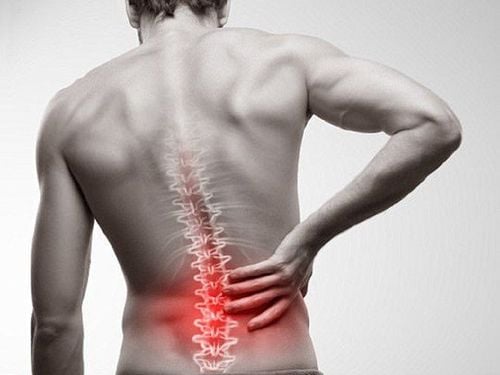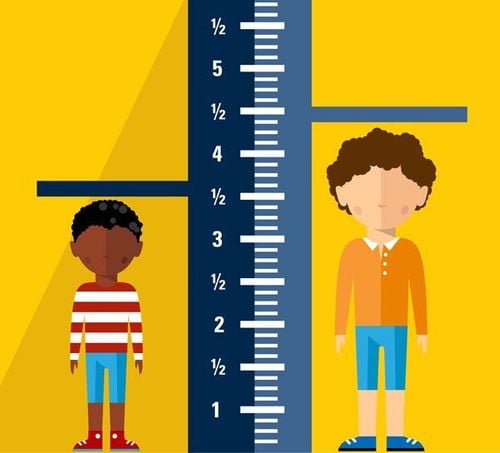Nutritionists believe that height is not solely determined by genetics; it also depends on various factors such as diet, environment, exercise, etc. This article will discuss whether height can be increased after the age of 18.
1. What factors influence height?
Before discussing whether it is possible to change height after adulthood, we need to consider what factors determine your height in the first place.
Genetics plays an important role in determining height, but it is not everything.
Studying twins is one-way scientists determine how much genetics influence height. In general, heights in twins are highly correlated. This means that if one twin is tall, the other is likely to be tall, too. Based on studies of twins, it is estimated that 60–80% of the difference in height between people is due to genetics, with the remaining 20–40% due to environmental factors such as nutrition.
The worldwide trend in height demonstrates the importance of nutritional and lifestyle factors. A meta-analysis of 1,472 height studies involving over 18.6 million participants found that the average height of people had improved significantly in 1996 compared to 1896. Improved nutritional status and exercise may be responsible for this change.
2. Will height stop increasing after adulthood?
Even with a healthy diet, most people's height will stop increasing after the age of 18 to 20.
The reason height stops increasing is due to bones, specifically growth plates. Growth plates, also known as epiphyseal growth plates, are specialized cartilages near the ends of long bones. Height increases are primarily due to the lengthening of long bones, as the growth plates are still active.
Near the end of puberty, hormonal changes cause the growth plates to harden, ossify, and growth stops almost completely. The growth plates develop into the bone at age 16 in women and between age 14 and 19 in men, so men are generally taller than women.

3. Do exercises help increase height after adulthood?
A common misconception about height is that certain exercises or stretching techniques can make you taller.
Many people believe that activities such as chin-ups, rock climbing, and swimming can increase height. However, there is no evidence or research on the effects of these exercises on height growth after adulthood. Height can vary slightly during the day due to increased or decreased compression of the discs in the spine.
Some of these activities may reduce compression of the discs in the spine and temporarily increase height to a very small extent. However, this is not a real change in height, and these effects are not long-lasting.
4. Does weightlifting reduce height?
Many people worry that exercise, especially weightlifting, can be detrimental to height. Some of these concerns are specific to children and adolescents, who are in the height development stage, and whose growth cartilage has not ossified.
However, most studies indicate that weightlifting is safe and beneficial at any age, as long as it is properly supervised. Most doctors and sports medicine experts also agree that weightlifting should not be avoided in children and adolescents.
One study asked 500 sports medicine experts whether weightlifting should be avoided until the growth plates have fully developed into bones. 85% of experts said that weightlifting should not be avoided, and only 10% said that weightlifting should be avoided. Additionally, other research suggests that the main concerns for weightlifting injuries are lack of supervision or improper use of equipment. Weightlifting can lead to mild compression of the spinal discs in adults. However, this compression is temporary and will heal with rest.
A potential cause of concern is a herniated disc that occurs as a result of work or exercise-related injuries, which can damage the discs in the spine and cause a slight loss of height.

5. Following a healthy lifestyle before age 18 can help you reach your potential height.
While you may not be able to change your height as an adult, there are steps you can take during your teenage years to maximize your height potential.
To achieve this, it's important to maintain a well-balanced diet and ensure you are not deficient in any essential vitamins or minerals. Many people today lack important nutrients, such as vitamin D and calcium, which are crucial for bone growth and overall health. Dietary calcium positively influences hormone production, benefiting bone health. Similarly, vitamin D plays a key role in improving bone strength. A significant way to combat nutrient deficiencies and promote optimal bone growth is by increasing your intake of fruits and vegetables.
Consuming enough protein is also vital for bone health. While some have questioned whether too much protein can be harmful to bones, a meta-analysis of 36 studies has shown that higher protein intakes are not detrimental to bones and can enhance bone density, particularly in the spine. Aim to consume at least 20 grams of protein at each meal. Good sources of protein include eggs, poultry, lean meats, and dairy products. Soybeans and other legumes are also excellent protein sources.
Although proper nutrition during childhood is essential for achieving maximum height, there may be differences in how nutrition impacts height for men and women. Some studies suggest that environmental factors, such as nutrition, play a larger role in determining height for women than for men. This could be influenced by differences in access to food and healthcare or higher rates of osteoporosis among women.
In addition, certain lifestyle choices, such as avoiding smoking, may also positively impact height during development.
However, it's important to remember that while childhood lifestyle factors can influence height, a person's final height is primarily determined by genetics.
6. What should you do if you can't change your height?
If you are an adult who is unhappy with your height, there are a few things you can try:
- Practice good posture: Poor posture and gait can rob anyone of a few inches of height.
- Try high heels or inserts: Choose shoes with higher heels or inserts in your shoes to add a few inches to your height.
- Build muscle to feel stronger: In general, if you feel small, lifting weights to build muscle can help you become more muscular and confident.
While these simple strategies can be helpful, some people resort to medical treatments or procedures such as leg lengthening. However, due to the invasive and expensive nature of these operations, many people do not choose these measures. These measures are even banned in some countries.

Others seek growth hormone (GH) treatment. GH may improve height in children who are not growing normally, but the benefits of this treatment in adults are uncertain.
Ultimately, you should accept your height rather than consider invasive measures.
To arrange an appointment, please call HOTLINE or make your reservation directly HERE. You may also download the MyVinmec app to schedule appointments faster and manage your reservations more conveniently.
Reference source: healthline.com













